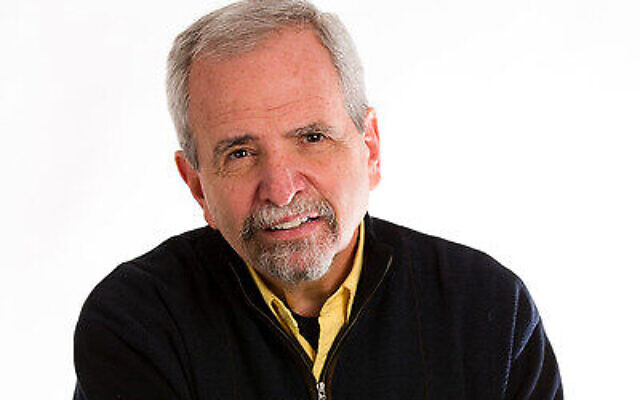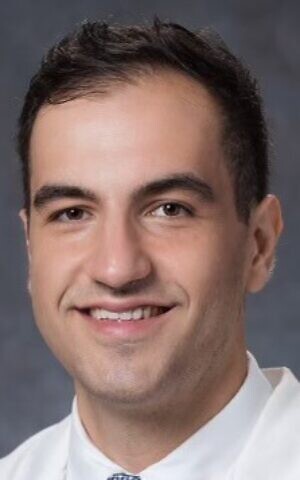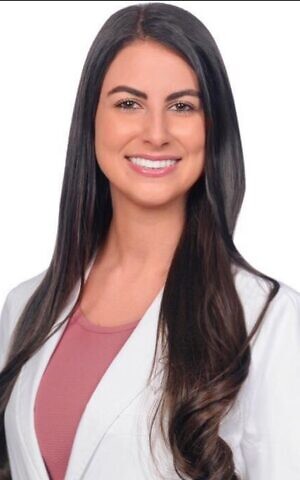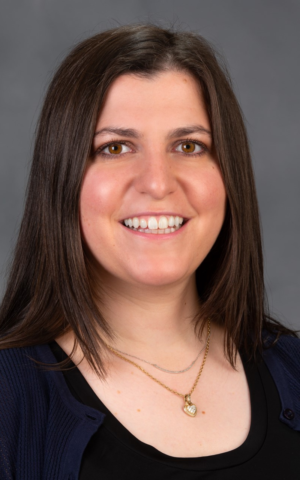So You Want to Be A Doctor?
Dr. Les Leighton shares strategies from his decades of coaching undergrads to get into medical school. Recent grads lend their advice.
After 37 years with the Atlanta Journal-Constitution and now with the AJT, , Jaffe’s focus is lifestyle, art, dining, fashion, and community events with emphasis on Jewish movers and shakers.

Dr. Leslie Leighton is a medical historian and physician who practiced gastroenterology for nearly 20 years. He is also a visiting lecturer in the GSU Department of History, holds an M.D. degree from the Johns Hopkins School of Medicine, an M.S. in history from Georgia Institute of Technology, and M.A. and Ph.D. degrees in liberal arts from Emory. Leighton has taught medical school students for years and is the president of the Atlanta Medical History Society.
Leighton currently serves on the pre-medical advisory committee at GSU, which finds him poring over the details of medical school applications. He also teaches an honors seminar, “Careers in Health Care,” gives an annual lecture on how to approach this career category, and proffers advice at the Spring Health Care Career Fair. Here are some of Leighton’s top tips for aspiring healthcare professionals:

Don’t overload your schedule. This is a journey, not a race. Consider taking more difficult biology or physics classes in the summer.
Some students may do well taking a year off to study and take the MCATS.
Seek out summer research jobs (see the CDC, Emory or GSU websites). Always leave the job with a letter of recommendation.
Look at “crossing schools.” A GSU student can take classes at Georgia Tech or Agnes Scott, for example.
One or two shadowing experiences are meaningful. Seek out a handful of significant activities in the third and fourth years, not 25 of them.
Practice mock interviews (now on Zoom). Think of books or movies important to you. What contributions do you think you can make? Why do you want to be a doctor? “I said that I was an extrovert who engages well with people and was interested in science,” Leighton noted. “What I did not say was, ‘My mother wants me to!’”
Leighton’s last word? “I see the most successful students and doctors as those who have great people skills by asking questions and engaging,” he said. “Plus, according to author Malcolm Gladwell, they get sued less.”

So that’s the view from a veteran of the field. But what do recent medical and dental school grads think? Three recent grads — and Atlanta natives — weigh in on the application process and their experiences.
David Kupshik, M.D., is currently doing a residency in diagnostic radiology. When it comes to interview preparation, he said, “Stay away from topics that you avoid at Thanksgiving dinner (like politics). And be prepared for certain talking points that inevitably come up: What are your own strengths and weaknesses? How do you define success? Relate a time when you overcame adversity. Give an example of your leadership skills.” Kupshik managed to streamline and de-stress the application process by applying “early decision” to his first-choice school.
Avery Jaffe, D.D.S., completed her endodontic (root canal) residency at the University of Southern California, and completed her four-year dental school training there. Her advice is two-fold: First, join relevant clubs like the American Student Dental Association and the Pre-Dental Society to develop contacts and get involved in peer dialogue. This also may provide shadowing experiences. Second, apply to multiple schools to widen your options. Jaffe says, “I first got into Detroit, LSU, Pittsburgh, and Indiana, for example, which provided confidence that I would be ‘on my way.’” Note that dental schools often have rolling admission policies. Also, “the ‘waiting list’ is a nail biter. I was accepted at a top choice two weeks before the program started and declined because I had already signed a lease and focused on another top choice,” she said.

Jamie Haber, M.D., took an alternate route. After Tulane, she did a one-year post-baccalaureate program in Pennsylvania before entering the medical program at St. George’s University in the Caribbean. She spent two years in the West Indies, then transferred to New York for her clinical rotations. Now an oncology/hematology fellow in Washington, D.C., Haber said, “There are a few Caribbean programs, as well as Italy, Australia, and Israel. After the four years, I was accepted at the University of Connecticut for an internal medicine residency. My education was solid, but it might be more difficult for someone from a foreign medical school to get into more competitive specialties like dermatology, ophthalmology or orthopedic surgery.”
By the numbers Leighton, a Johns Hopkins alum, shared the 2025 class stats:
■ 7046 applicants
■ 603 interviews
■ 254 acceptances
■ 120 matriculated
■ Of these 120 graduates, 70 identified as female and 50 as male. (51% Asian, 26% Caucasian, 19% Underrepresented)
- Marcia Caller Jaffe
- Center for Disease Control and Prevention
- Education
- Community
- Dr. Leslie Leighton
- Georgia state university
- prospective medical students
- Dr. Avery Jaffe
- undergrads
- school clubs
- multiple schools
- apply
- Dr. Jamie Haber
- alternate route
- medical program
- Early Decision
- Department of History
- Johns Hopkins School of Medicine
- Georgia Institute of Technology
- Emory University
- medical school students
- Atlanta Medical History Society
- Careers in Health Care
- Spring Health Care Career Fair
- MCATS
- letter of recommendation
- Agnes Scott College
- crossing schools
- mock interviews
- Zoom
- Malcolm Gladwell
- medical school
- dental school
- diagnostic radiology
- first-choice school
- endodontic
- University of Southern California
- American Student Dental Association
- Pre-Dental Society
- rolling admission policy
- waiting list
- oncology
- hematology
- West Indies
- Caribbean
- Dr. David Kupshik



comments